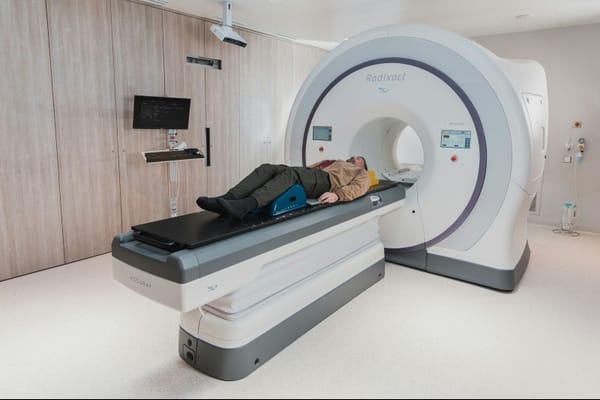Quantum computing is poised to revolutionize drug discovery, potentially accelerating the path to increased longevity and improved health outcomes. This cutting-edge technology offers unprecedented computational power, enabling researchers to simulate complex molecular interactions and analyze vast amounts of biological data with remarkable speed and accuracy.
Key Takeaways:
• Quantum computing can significantly accelerate drug discovery processes
• It enables more accurate molecular simulations and data analysis
• The technology could lead to personalized medicine and targeted therapies
• Challenges include quantum noise and scalability issues
• Collaboration between academia, industry, and government is crucial for advancement
Quantum computing is emerging as a game-changing technology in the field of drug discovery, offering the potential to dramatically accelerate the development of new treatments and therapies that could extend human lifespan. This powerful computational approach harnesses the principles of quantum mechanics to perform complex calculations at speeds far beyond those of traditional computers, opening up new possibilities for understanding and addressing age-related diseases.
The Quantum Advantage in Drug Discovery
One of the most significant advantages of quantum computing in drug discovery is its ability to simulate complex molecular interactions with unprecedented accuracy[1]. Traditional computers struggle to model the behavior of large molecules, such as proteins, which are crucial targets for many drugs. Quantum computers, however, can efficiently simulate these interactions, allowing researchers to predict how potential drug candidates might bind to their targets and what effects they might have on the body.
This capability could dramatically reduce the time and cost associated with drug development. Instead of relying on time-consuming and expensive laboratory experiments to screen thousands of compounds, researchers could use quantum simulations to identify the most promising candidates quickly. This approach could potentially cut years off the drug discovery process, bringing life-saving treatments to patients faster.
Personalized Medicine and Longevity
Another exciting application of quantum computing in drug discovery is its potential to enable truly personalized medicine[2]. By analyzing vast amounts of genetic and molecular data, quantum computers could help identify subtle patterns and relationships that are invisible to traditional data analysis methods. This could lead to the development of highly targeted therapies tailored to an individual's unique genetic profile, potentially improving treatment outcomes and reducing side effects.
In the context of longevity research, this personalized approach could be particularly valuable. Aging is a complex process influenced by a multitude of genetic and environmental factors. Quantum computing could help researchers untangle this complexity, identifying key molecular pathways involved in aging and developing interventions to slow or reverse age-related decline.
Challenges and Future Outlook
Despite the immense potential of quantum computing in drug discovery and longevity research, several challenges remain[1]. One of the primary obstacles is the inherent instability of quantum systems, which can introduce errors into calculations. This issue, known as quantum noise, has been a significant barrier to achieving consistent and accurate results.
Another challenge is the scalability of quantum computing. Current quantum computers operate with a limited number of qubits, which restricts their ability to handle large-scale problems. To fully realize the potential of quantum computing in drug discovery, machines with tens of thousands or even millions of qubits will be necessary.
However, researchers and companies are making rapid progress in addressing these challenges. Innovations by companies like Microsoft and Quantinuum aim to minimize inaccuracies and move quantum computing beyond the current Noisy Intermediate-Scale Quantum (NISQ) level to a more resilient and error-free stage[1].
Collaborative Efforts and Future Prospects
The future of quantum computing in drug discovery and longevity research looks promising, but it will require collaborative efforts across sectors to fully realize its potential[2]. Academia, industry, and government agencies are increasingly working together to advance quantum technologies and develop new algorithms tailored for drug discovery applications.
As quantum computing continues to evolve, it is expected to revolutionize our understanding and treatment of age-related diseases. The ability to perform highly accurate molecular simulations and analyze complex biological data will enable the development of personalized therapies tailored to individual genetic profiles, significantly improving health outcomes and potentially extending human lifespan.
Conclusion
Quantum computing represents a paradigm shift in drug discovery and longevity research. Its unparalleled computational power and ability to handle complex molecular simulations offer the potential to accelerate the development of new treatments, enable personalized medicine, and deepen our understanding of the aging process.
While challenges remain, ongoing advancements in quantum technology and collaborative efforts across sectors are paving the way for groundbreaking therapies that could transform our approach to aging and significantly enhance human healthspan. As we stand on the brink of this quantum revolution in healthcare, the future of drug discovery and longevity research has never looked more promising.
Citations:
[1] https://www.sanatorium.health/quantum-computing-in-drug-discovery
[3] https://www.ncbi.nlm.nih.gov/pmc/articles/PMC6205278/
[5] https://isrrthk2024.org/public/assets/images/Conference%20Proceedings.pdf















Member discussion